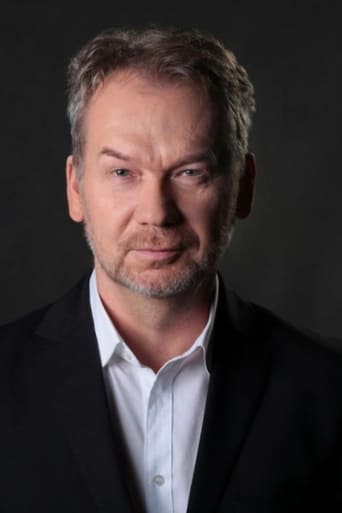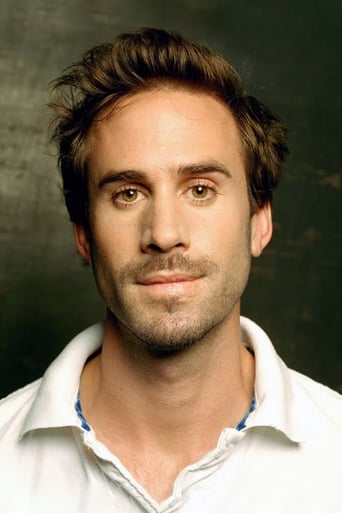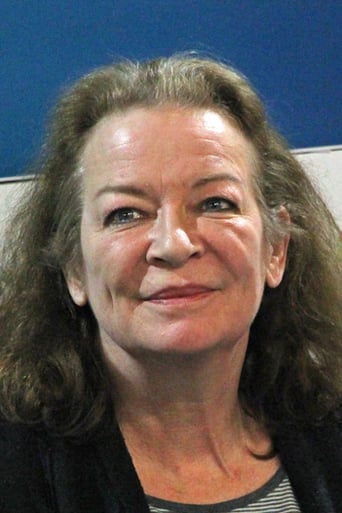PodBill
Just what I expected
Sexyloutak
Absolutely the worst movie.
Freaktana
A Major Disappointment
Dynamixor
The performances transcend the film's tropes, grounding it in characters that feel more complete than this subgenre often produces.
BuyaCheap Tripod
The film in a serious subject, but far too often the shaky cam forces the audience to look away missing much of this movie. If you like nausea and headaches check it out. Otherwise simply skip this one. Its really surprising to me that in a day in age when there is so much hardware available to directors to keep video smooth and professional that something like this could ever get made. Directors and Investors: It doesn't matter how good your script is, if you make your movie look like a middle school phone camera youtube video, we can't watch it.
SnoopyStyle
In 1971 Poland, older cello player Planck is greeted as a returning triumph with her daughter. In 1941 Poland, doctor Artur Planck (Joseph Fiennes), his wife Clara (Clare Higgins) and their two daughters are trying to escape the coming Nazis. One of the girls is killed. They find shelter at Emilia (Maria Pakulnis)'s farm house. She's the local grocer whose husband is lost in the fighting. While Clara is forced to stay in the attic, Emilia gets romantic with Artur and tells people that he's her cousin.This Holocaust story could have been made more intense. There is a slight tone problem. It strays too far into love triangle territories. Those parts should be treated with more matter-of-factness. Every hurt feeling and every hesitation adds an unwanted melodramatic feel to the movie. This should have been more tense.
gudrunh-794-69037
Renowned composer and musician returns to Poland with her daughter for the opening of a concert hall dedicated in her honour. She in turn seeks out a country farmhouse and its owner, but is left in no doubt that she is not welcome there.Another movie told in flash-back, this follows the plight of Jewish surgeon Artur Planck, his wife Clara and their family as they seek to escape persecution in occupied Poland. Based on the life of composer Ida Fink, it paints a very bleak picture indeed, and a very complex one, emotionally.Rural Emilia is forlornly awaiting her husband's return from the front and she takes the family in, giving them shelter in her loft.Now here it begins to get a bit tricky. Emilia has long held a torch for Artur (she confesses to him that she had once visited his surgery for an examination while not actually being ill), and his presence here could be a mutually beneficial one, despite the danger in which it places her. His wife upstairs though is an inconvenience. On the pretext that Clara's "Jewish appearance" would be a liability if she were to be anywhere but up in the loft, and that Artur could pass as a local (a visiting brother?) she encourages him to do the necessary work around the farm and thus be in a position to spend more time with her. And he does, albeit reluctantly, for his wife is after all just upstairs. For her part though she has become resigned to survival, even at the cost of her marriage and so she sanctions this parlous and already tempestuous relationship. Emilia's expectations increase incrementally and she wants this new union to have legitimacy. Wartime yes, but Catholic Poland is still Catholic Poland.The final scenes are harrowing but answer the many questions which had been earlier posed.A very dark, but worthwhile film, though the "classic war movie" label is somewhat misleading. Rather, a movie set in wartime.
sddavis63
There are some very powerful and very emotionally moving moments in this movie. Certainly the deaths of Artur and Clara's two young daughters after they're shot by German soldiers are horrifying, Clare Higgins was riveting as she described Artur's final fate, and the concert at the end of the movie as she played the cello and saw in the audience the faces from her past certainly made the point that survivors of the Holocaust must be haunted by their memories and must find it difficult to move on. But on the whole this movie disappoints. Those powerful moments are somewhat scattered and so don't really hold this together or raise it to a higher level.Instead, this movie came across to me as rather muddled. It shifts back and forth repeatedly from 1971, as Clara revisits some of the places from her past, to 1941, as we're given the story of what happened to her family. The shifts are somewhat abrupt. They didn't flow very well; they weren't smooth. I also thought that the movie had an unfortunate air of melodrama to it as it traces the relationship between Artur and Emilia - the young woman in whose farmhouse the Plancks hide, and who falls in love with Artur and begins a somewhat strained relationship with him. I'm not denying that such things could have happened, but it really didn't seem to be the plot point around which a movie of this type should revolve. As an addition to the "Holocaust" collection of films, I have to say that this is not one of the stronger ones. (3/10)




